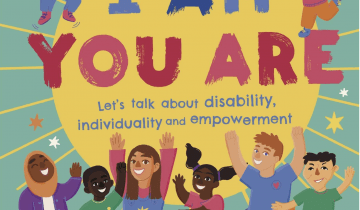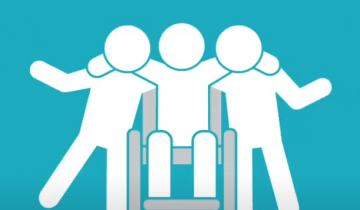In 10% to 15% of cases, there is no clear cause of CP. There is increasing recognition that genetics plays a part, but no standardized approach to genetic testing in patients with CP exists. In this study we asked the question whether both people with and without known risk factors for CP should have genetic testing.
This powerful, practical book is meant to help children and adults have meaningful discussions about disability and ableism.

Many people do not know the difference between SSI and SSDI. It can be very confusing for a family or individual to understand what is available, and whether they will qualify. Very often, the recipients and their families do not even know which benefits they are receiving. But it is important to understand some basic information about government benefits. This post will focus on the two most common government benefits and give you a brief overview of how they work.

Setting up a Third Party-Special Needs trust as part of estate planning is essential if the individual with a disability is or may be eligible for means-tested government benefits. A properly set up Third Party Trust ensures that the funds left to the individual, whether through gift or inheritance, are not considered countable assets when applying for means tested benefits

In 2014 the Achieving a Better Life Experience Act was passed. The ABLE account is a tax-advantaged savings account for individuals with disabilities. The individual with the disability is the account owner and anyone can contribute to the account – the account beneficiary, family, friends, even a Special Needs Trust.

A special needs trust is a written legal agreement that enables an individual with a disability to qualify or remain qualified for means tested government benefits, such as medicaid, SSI or even medicaid waivers.

As we all know, becoming a teenager means significant upheaval, not only physically, but in terms of friendships, in terms of learning, and life outlook. This is also true for adolescents with cerebral palsy and other developmental disabilities. We know that whilst we may of spent a lot of time focusing on their physical abilities and other difficulties it is not the only part of their life.

Around the age of six all children are going off to school. Children move from explorative play, which is fairly informal to a much more formal day. That can be a lengthy day and it's quite structured. There are a lot of challenges faced by children with cerebral palsy throughout the school year.

When treating a child with CP, part of a pediatrician’s job is assessing and treating children with abnormal tone difficulties, as well as other muscular-skeletal problems. From around the age of two years, kids start to develop difficulties with muscle tone that can have an impact on their hip development.

